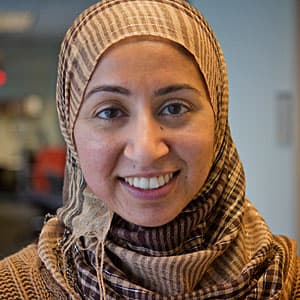Advertisement
With DCF Under Scrutiny, Requests To Remove Children From Troubled Homes Rise Sharply
ResumeThe state Department of Children and Families works with people in crisis, and so alarming disappearances and mysterious deaths are not out of the ordinary. But a recent spate of high profile cases, including the case of a missing 5-year-old Fitchburg boy who is feared dead, has thrust the agency into the spotlight.
"This is not a new story, unfortunately, with this agency. And it's because they're working with very troubled families," Massachusetts Senate President Therese Murray told WBUR's Morning Edition last week. "When I began my career in the Senate as chair of Human Services, we overhauled the agency then because then we lost seven children in one year in the foster care system. When I say lost, I mean they were murdered."
That was in 1997.
How many children die each year in the DCF system because of abuse and neglect is debatable. A report from the New England Center for Investigative Reporting says that since 2001 at least 95 children have died. The Office of the Child Advocate disputes that number as too high.
Either way, it's fair to say, deaths — such as the ones that have received recent attention — are not a new problem. In fact, the Office of the Child Advocate was created in 2007 in the wake of a series of fatalities in the DCF system.
Gail Garinger heads the office, and she says it's unfair DCF gets all the blame. She says the agency is not operating in a vacuum. Pediatricians, teachers, judges — they're all involved too. The entire system puts a priority on strengthening families and keeping them together.
"There would be some who might criticize that in some cases we perhaps did leave children in homes where the family just could not be sufficiently strengthened," Garinger said.
Since the disappearance of 5-year-old Jeremiah Oliver, DCF has found itself under intense scrutiny. There have been calls for Commissioner Olga Roche to resign. The governor has an independent organization investigating the department's procedures, and state lawmakers are also conducting a review.
The result of all this attention, Garinger says, is that the DCF is now operating in a dangerous reactive mode. She says she's particularly concerned about the recent spike in requests to remove kids under DCF supervision from their family homes.

"I think we need to get a better understanding of what that represents," Garinger said. "Were some children left in homes they shouldn't have been left in and now we're filing? Or are we filing prematurely perhaps out of risk aversion?"
Last month, the number of requests to take kids away from their families was nearly double what it was a year ago.
Garinger says front-line social workers have a "Herculean" job.
Dacia Thompson is one of those social workers, and she agrees that these days that it's tough job. The media are attacking you, politicians are joining the choir, and so social workers are walking on eggshells.
"Every crisis is taken to be big right now," she said. "And so the response to families' homes and disrupting children's lives is higher because everybody is taking crisis to the extreme."
Thompson has worked for DCF for seven years — first in Weymouth and now in Dorchester. She loves the work, but admits it's overwhelming. She's juggling 20 cases right now — and that's not 20 kids, that's 20 families, some with as many as six kids. Thompson says she's often working 13-hour days.
Part of what's frustrating, she says, is that the public doesn't understand her job.
"I think there's pressure to create this superhuman persona that we can solve and fix and do everything." But, Thompson says, that's not possible. Every family that DCF helps is a family in crisis. DCF enters the picture because there's a problem. And it's even harder, she says, when social workers are balancing 20-plus cases. The average national caseload is 15 — that's considered a "safe" amount.
Peter MacKinnon, president of the union that represents state social workers, says many of them are juggling more than the safe number, which means they're just triaging.
"You're making a decision, 'I'm gonna look at this particular aspect of a case and not that aspect. And I hope that what I'm looking at is the right aspect,' " MacKinnon said. "And it's a gamble because you don't have the time to look at everything."
Since the Jeremiah Oliver case, Gov. Deval Patrick has called for additional funding to decrease caseloads. And last week the Massachusetts House approved $2.8 million in emergency funding so that DCF could hire more staff.
But Natick Rep. David Linsky, chair of the House committee investigating the DCF, says that's only a short-term solution.
"Clearly, we need to reduce the caseload, but I don't want people to think that just by throwing money at the problem we can fix all the problems at DCF," he added.
Linsky says his committee is doing a top to bottom review in the hopes of crafting some concrete solutions that can be adopted when the House debates the budget in the spring.
